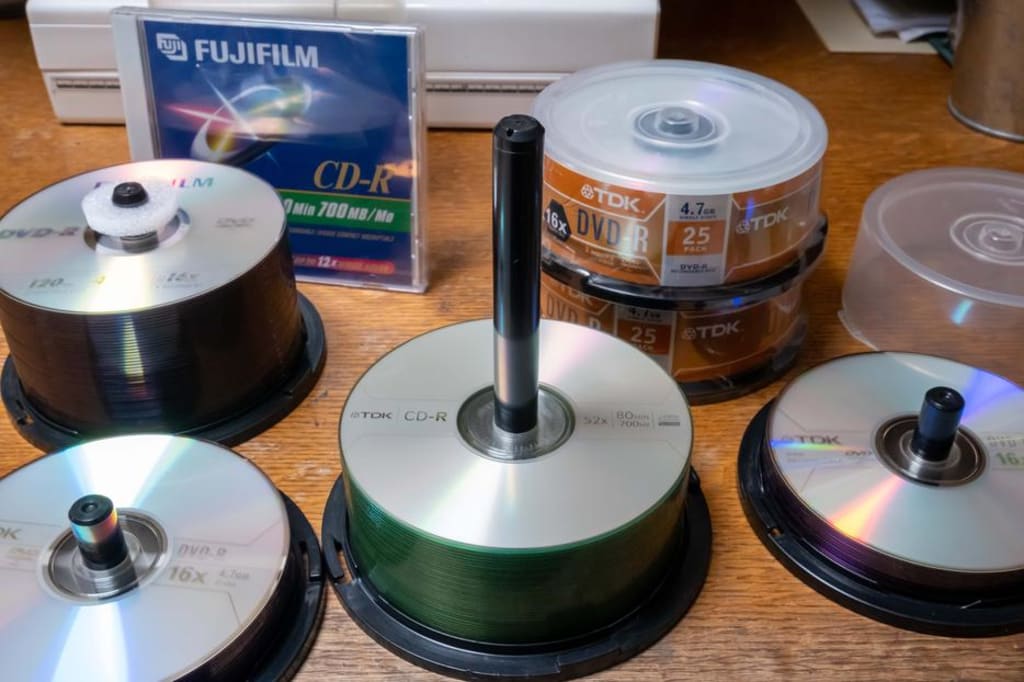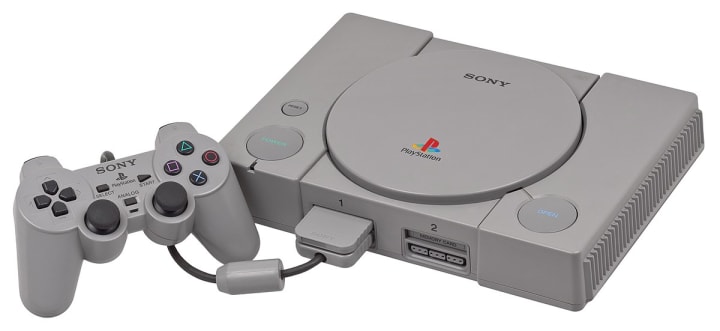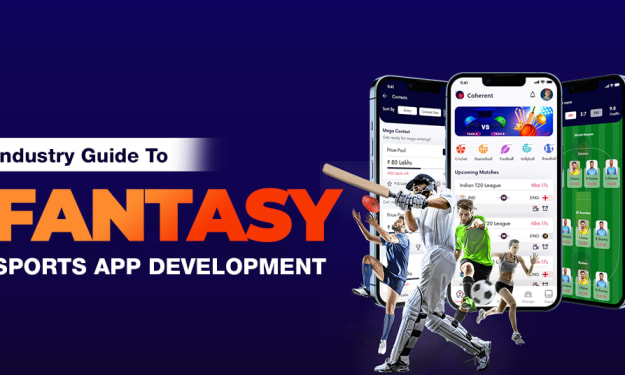
Disclaimer: Before I begin, I just want to clarify that I am in no way advocating piracy.
Whilst I look back fondly on this era of my youth, there is no doubt that counterfeit gaming seriously damages the industry, especially those smaller studios and their entire workforce. This is a nostalgia piece on how piracy contributed to my love of video games and how I probably should have known better.
So… What’s your favourite console of all time?
It’s a tough question and since my humble beginnings as a child on the NES, gaming has come an awful long way. Do you answer the question based on technological advances or simply what gave you the most joy? For me, what defines a great console is not necessarily its hardware, graphics or even its games, but impact it had on your life.
Whilst my first true love affair with a console was the Sega Mega Drive, it is the original Sony PlayStation that I consider my all-time favourite console and one that changed my attitude towards gaming forever.
As the embers of the cartridge-based consoles began to fade the transition was slowly being made to Compact Discs and a new era of gaming was about to be born. The evolution from 16bit to 3D was a revolution, a jump so huge that I doubt we’ll ever see another generational shift of that magnitude. This new era was spearheaded by the Sony PlayStation and once it arrived gaming would simply never be the same again.
Between 1994 and 2006 the PlayStation sold 104.25 million units globally, totally dominating its rivals in terms of sales figures. With games usually retailing at round £30-£40 each upon release and the popular Platinum range (older best sellers) at £19.99. The original Gran Turismo, which sold 10.85 million legitimate copies alone and was the consoles highest selling title.
The PlayStation became THE console to own amongst my group of friends and I finally got my hands on one in 1998 alongside a copy of Premier Manager. The very same year David Beckham gave that little Argentinian fella a tap on the leg and Bruce Willis saved the planet in Armageddon.
I quickly realised my new gaming addiction was going to be an expensive hobby, so when a friend told me there was a way to get games on the cheap with minimal risk, I never even question it. He showed me his collection of pirated games and I was instantly jealous.
And thus, began my brief foray into piracy. One that began and ended with the original PlayStation in a world long before consoles were online, gamer scores existed, and user accounts were tied to email addresses.
The process of modifying a PlayStation to play counterfeit games went by many different names, locally where I lived in the north of England they called it ‘Chipping’.
Chipping (more commonly known today as a mod chip) to put it simply, is when a small chip or board is soldered into the console itself. This allows the system to play games from other regions as well as pirated copies, bypassing any anti-piracy hardware installed to prevent this.
Now as a twelve year old kid, I knew right from wrong but it never occurred to me what I was doing was truly illegal, I just saw a way to play as many games as I could for dirt cheap. It meant that with my pocket money I could now afford a new game every week. I didn’t think of the ramifications that my actions may have on the gaming industry and smaller development studios; I doubt many kids my age gave it a second thought.
Give a child the option of having either two full price legitimate games on their Christmas list or 12 pirated ones for the same cost and the answer is simple. I was in video game heaven.
I would estimate about 75% of my friends who owned the console had it chipped, the only reason the other 25% didn’t wasn’t a choice based on moral grounds, but simply because their parents wouldn’t let them. Looking back, I can’t lay the responsibility solely on my younger self, morally my parents could have stepped in. However, mine (like many at the time) didn’t really understand gaming and as long as it kept me quiet and saved them a bob or two, they were happy to oblige.
Over the years I amassed a library of over two hundred pirated games, I felt like Scrooge McDuck but instead of diving into a vault full of coins, it was CD-Rs. My collection was all stacked up in blank cases with the titles scrawled on via permanent marker, some with poorly printed replica front covers. The blank CD-R cases may have looked ugly, but they actually came in handy as it meant I could play 18+ rated games without my parents’ knowledge!
So where did the games come from? Well, everyone knew a kid at school or someone’s parent that knew someone at work who could get you games for around £5 a pop. There was a list, on white A4 paper in Times New Roman font and about four pages long, folded and crumpled due to how many kids had thumbed through it. The list featured many titles that were only available in other regions and even cancelled games. One of my friends became something of a local celebrity for a week when he managed to score a copy of the controversially canned game, Thrill Kill.
There was one kid at my school who was the Blackbeard of media pirating. He sold dodgy PlayStation games, DVDs, CDs and even vinyl stickers of famous wrestlers in the South Park art style. He made so much money that back in the year 2000 at the age of 14/15 there were rumours that he even had his own personal Sky Digital TV box in his bedroom with a full subscription. There is no doubt that this clearly was an incredibly lucrative business for some.
Pirated games were even sold on my local high street, several briefcases filled with games all lined up on a makeshift table slap bang in the city centre. There was even a ‘spotter’ at the end of the street who would give the signal once the cops arrived, then the briefcases were snapped shut and the sellers would leg it in every direction. This happened every Saturday.
Piracy on the PSX wasn’t just rampant on the mean streets of the UK, I remember once going on a family holiday to Turkey and returning with about twenty games that I bought at a local street market, sold at the equivalent of 50 pence apiece. Surprisingly about 90% of them actually worked, yet I’m still a little bitter to this day that I could never get Donald Duck: Goin’ Quackers to actually load.

My brief foray into buying pirated games ended with the birth of the PS2. I hung up my cutlass, put the parrot back in the cage and anchored my galleon, it was all over.
I’d heard on the grapevine that the PS2 was a more difficult system to ‘chip’ with Sony clamping down on piracy for this new generation. I am unaware as to how true this was, but the scare tactics certainly worked on me. The console cost so much that my dad made it very clear that we would not be getting a new one if we broke it.
Yet going legit didn’t affect my gaming experience in the slightest. I recently dug out my old PS2 and was surprised just how many games I owned, trade-ins and platinum titles etc. When I finally started earning my own money, there was a sense of achievement that came with being able to afford the latest titles and being able to show off a real legitimate collection.
Now, as an adult I can’t ever imagine going back to piracy. With the likes of Game Pass by Microsoft and PS Now, there are literally hundreds of titles to choose from at my fingertips, ready to download in a matter of minutes. All available for a small subscription fee that is not much more than the price of a couple of pirated games was back in the day.
Does piracy even exist in the current generation of consoles? Is it even possible to acquire a mod chip for the PS4 or Xbox One? Without using a search engine to check, I have absolutely no clue. It’s simply something that just doesn’t interest me anymore. I work full time and now have the means and desire to support an industry that I love, but I also understand that not everyone does and I’m not going to judge them for that.
Video game piracy existed long before my story and probably continues to this day. It was one of the contributing factors to the downfall of the Sega Dreamcast and most certainly contributed to the closure of many development studios over the years. There’s definitely some mental gymnastics going on while I try to justify what I recall as one of my favourite gaming experiences, but I remember the scene and those days incredibly fondly and I’m sure I’m not alone.
It’s easy to sit on my high horse as an adult, yet I’ll never forget my piracy led experience. It’s the reason I consider the original PlayStation to be my favourite console of all time, something that played a large part of my childhood and cemented my love for gaming.
There was so many titles and genres that I simply would never have given a chance if it wasn’t for the fact I could buy them for a fiver. This meant that in the post-piracy years to come I’d happily pay full price for the next generation instalments to that series that otherwise I’d never have tried, such as Tony Hawk’s Pro Skater, Final Fantasy or Rival Schools.
We can all agree that piracy is wrong, yet it helped shape many of us to become the gamers that we are today. Whether it was mod chips, albums ripped using Windows Media Player, Napster or even downloading classic games to play through an emulator. You would be hard pressed to find someone who at some point in their lives hasn’t participated in a form of media piracy.
It could be argued that the PlayStation was the first console to make the leap into the mainstream media, the turning point where video games started to be seen as no longer ‘just for kids’. Whether it’s right or wrong, piracy contributed to that. It pushed more games into the hands of the public who prior to which may not have had either access or the funds to afford them.
It came at a price, most certainly to developers but it’s one I believe helped raise gaming to a new level. It created an itch amongst gamers that only more games could scratch, an appetite to consume more media as one single game would never again be enough. It may be a controversial take, but I believe in the long run more legitimate titles were bought due to the sheer amount of games devoured through piracy in this era.
An era that I for one will never forget.
About the Creator
Luke Marshall
Part-time writer/blogger and full-time nostalgia hound.
Lover of punk rock, vinyl and whisky.
Published on GrownGaming, Game Tripper and RetroVideoGamer






Comments
There are no comments for this story
Be the first to respond and start the conversation.